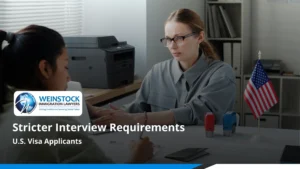If immigrants could not come
A new study from the National Foundation for American Policy found a 83% (this is 33 of 40) of the finalists of the 2016 Intel Science Talent Search were children of immigrants. This competition is organized each year by the Society for Science & the Public. It is the leading science competition for U.S. high school students.
75% of the finalists’ parents worked in America on H-1B visas and later became green card holders and U.S. citizens. That compares to seven kids whose both parents were born in the United States.
Let us put that in perspective: former H-1B visa holders represent less than 1% of the U.S. population. They were four times more likely to have a child as a finalist in the 2016 Intel Science Talent Search than were parents who were both born in the United States. Three of the finalists had parents who came to America as family-sponsored immigrants.
Among the 40 finalists of the 2016 Intel Science Talent Search, 14 had parents both born in India, 11 had parents both born in China, and seven had parents both born in the United States. People of Indian and Chinese birth represent about 1% of the U.S. population each, according to the Pew Research Center.
In addition to China, India and the United States, the countries of origin for the parents of 2016 Intel Science Talent Search finalists represent other countries, including Canada, Cyprus, Iran, Japan, Nigeria, Singapore, South Korea and Taiwan.
The science competition has been called the “Junior Nobel Prize”. More than 95% of winners of the Intel Science Talent Search (STS) traditionally have pursued science as a career, with 70% earning Ph.D.’s or M.D.’s. Many of the students I interviewed hope to start their own companies. In 2016, children of immigrants earned seven of the nine top awards, including first place prizes for innovation and basic research. These children understand and cherish the sacrifices their parents made to ensure them a better life.
Related posts

New Scrutiny on H‑1B and Skilled Worker Visas: How to Prepare
Summary H-1B visa holders and U.S. sponsoring employers are facing a new era of heightened immigration scrutiny. 2025 introduces stricter rules, higher fees, and increased

Stricter Interview Requirements for U.S. Visa Applicants – What You Must Know
Summary The U.S. visa interview process is set to undergo one of its most significant changes in recent years. Starting September 2, 2025, most nonimmigrant

What the Latest Visa Integrity Fee Means for Non‑Immigrant Applicants
Summary The U.S. government plans to introduce a new Visa Integrity Fee as early as fiscal year 2026. The fee is set at $250 per
